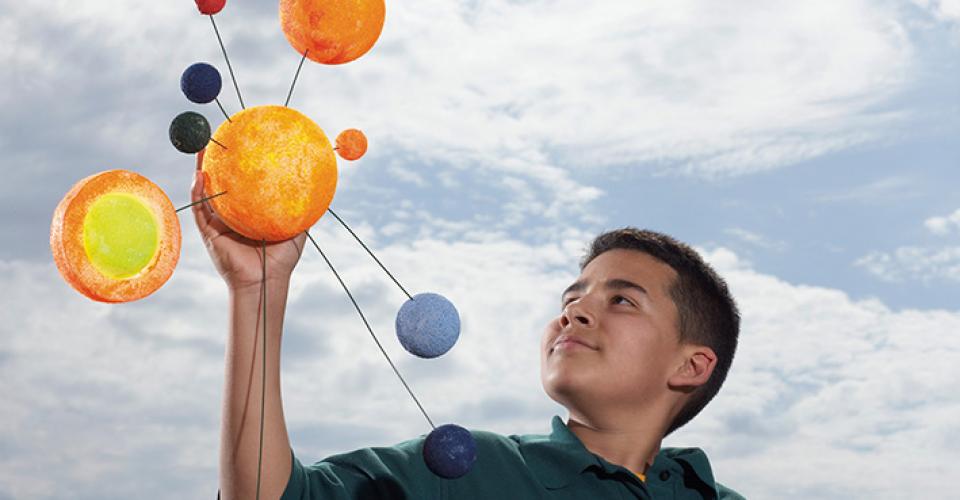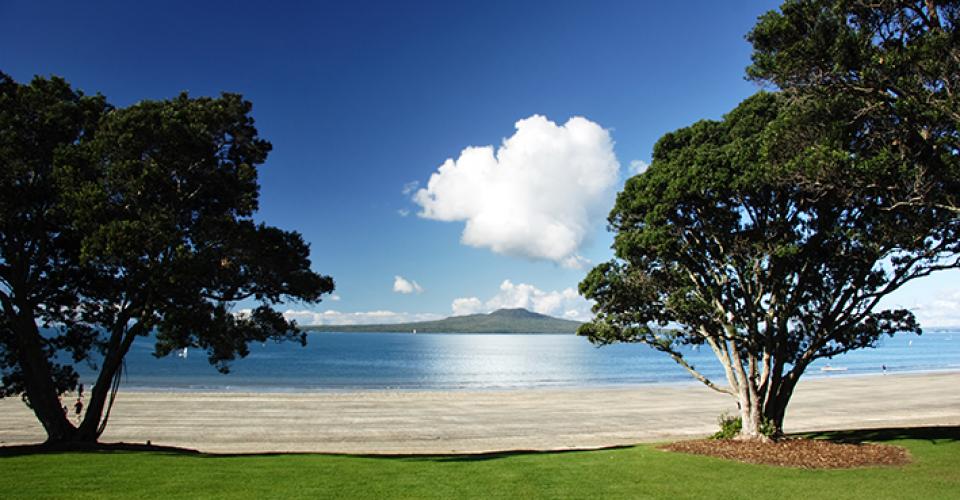Scientific literacy for everyone
26/11/2015Invercargill teacher Tania Lineham was awarded the 2015 Prime Minister’s Science Prize for Teaching for tirelessly making science accessible and exciting for her students, writes MELISSA WASTNEY.

Southland chemistry teacher Tania Lineham believes the prestigious award won’t change anything about her job, but will inspire her to keep doing it.
“I really enjoy my work, and I’m passionate about science education,” she says.
Tania has taught science for 27 years, 25 of which have been spent at James Hargest College in Invercargill, where she is head of the science department, which currently comprises 17 teachers and two technicians.
Tania also teaches year 9 and 11 general science, and year 12 and 13 chemistry at the large co-educational state secondary school.
“The award is a good affirmation of what we do here. It confirms we’re on the right track with how we teach science,” she says.
At the annual awards ceremony in early November, Tania was presented a trophy and cash prize by Prime Minister John Key. In her short address to the audience, she spoke of her desire to make science education accessible to every one of her students, regardless of their academic abilities.
“To me, science is not privileged information. It’s for everyone,” she said at the ceremony. She also spoke about the wider issue of scientific literacy in her community.
“What I was referring to there was students coming through with ideas that were not based in good science. Also what we all come across in the media – whether that’s social media, the wider internet, print media and television.
“I think that scientific literacy is a really important skill that students need to take them through life.”
From conspiracy theories to fad diets and herbal supplements, pseudoscience is everywhere, Tania points out.
“I want my students to question things – not to just accept things because they read them somewhere or because someone told them it was true.”
She enjoys practical, hands-on science with her students, but also highlights the importance of supporting and facilitating ethical discussions in the classroom.
“We talk about ‘big issues’ in class – put our ideas out there, then take them further with research. Together, we work out what we think about things. I find my students are really open to talking and thinking about big issues.
“You have to bring the balance to the arguments – give them the opportunity to come to their own conclusions. If you try and tell people what to think, they tend to dig their heels in.”
These thinking and research skills are playing an increasingly important part in our students’ education, says Tania.
“I call it digital citizenship. It’s about becoming a critical consumer of the information that is all around us. It can be difficult to teach, but it’s becoming essential in this day and age.”
Joy in students
James Hargest College principal Andy Wood says Tania is a strong and committed head of department in the school.
“She is a good role model in her own practice, but she’s also been able to keep her team focused on a very high level of achievement. Tania is a good advocate for science in our community. We’re really proud of her.”
“She gets my respect particularly for the way she’s enthusiastic about our very academically able students, putting them in touch with special programmes, awards and ideas. But she’s also a champion of our less able students. She has a real passion for encouraging all of them in science.”
This desire to encourage all her students in science is obvious when I ask Tania about her achievements.
“It’s a pretty exciting time here at our school. We’re trying to make science accessible across all the ability levels, because I believe that is really, really important.
“It’s about making pathways for all our students. We’re a state co-ed and so we want to make sure we cover the whole spectrum of our students’ abilities,” she says.
“I’m very proud of my students actually, right across the board. I do a lot of class visits in my department and am also proud of my fellow teachers and the way they work.”
Bailey Lovett, who in 2010 was awarded the Prime Minister’s Future Scientist Prize for her research into water quality in the Riverton/Aparima area west of Invercargill, was one of Tania’s past students and is now studying for her PhD in Auckland.
“She completed a thesis in Australia, which was really exciting for her. It was exciting for me too, as her former teacher.”
Many of Tania’s students have participated in interesting science events, such as the Chemistry Olympiad and the London International Youth Science Forum. Another was selected to go to the ANZAAS Conference in Adelaide.
“It’s really great to see our top academic kids getting those amazing opportunities – it often sets them on an exciting scientific path,” she says.
She hopes to channel the prize money that accompanies the Prime Minister’s award towards just these kinds of student opportunities.
“We’re hoping that some of the money can go to students when special science opportunities come up. They can open up a lot of doors for them.”
But it’s not all award programmes and overseas trips. Tania is concerned with achievement on a wider scale.
“Last year we developed a new Level 2 science course, aimed at students who will probably not go on to university. This one was more a trades or ‘vocational pathways’ course. We set up two of these last year, and three this year. And we’ve heard from students who tell us they want a Level 3 course as well, which we’ll do in 2016.”
Challenges and wishes
Particular challenges in teaching science include assessment and planning, says Tania.
“It’s the secondary environment with assessment at NCEA level that can be difficult. I find this is always challenging, because you’re trying not to teach to assessment, and yet you have to prepare the students for the assessment. So that’s a bit of a tension, and conflict.
“Plus we’re expected to train our kids for NCEA before they have to actually have to sit it. We resist it a bit – we don’t have an end of year exam in year 9, but we’re obliged to have one in year 10. So the junior science teachers make sure that happens and works smoothly.”
At the core of her work, Tania returns to her conviction that that scientific literacy remains essential to the wellbeing of our society.
“Together, we are very dependent on science and yet there are so few who truly understand it – and that is a challenge for all science educators and communicators.”
Tania’s three wishes for the future of science education:
- I would love to see more young people coming into teaching who are passionate about science, in particular chemistry and physics specialists.
- I wish for more students taking sciences beyond Level 1 of the curriculum and more people going into STEM-based careers.
- I believe we all need to work towards creating a more scientifically welcoming and literate society to safeguard against the cynical use of pseudoscience and because this leads to a greater understanding of the world around us.
You might also like to read:
- To the Ice
- Gene editing - a train coming down the track
- The gene editing future is here - Royal Society NZ panel formed
- The future of farming - teachers learn about agriculture careers
- The exponential generation - student workshops look to the future
- Network of inspiration: Assoc. for Women in Science

























Post your comment
Comments
No one has commented on this page yet.
RSS feed for comments on this page | RSS feed for all comments